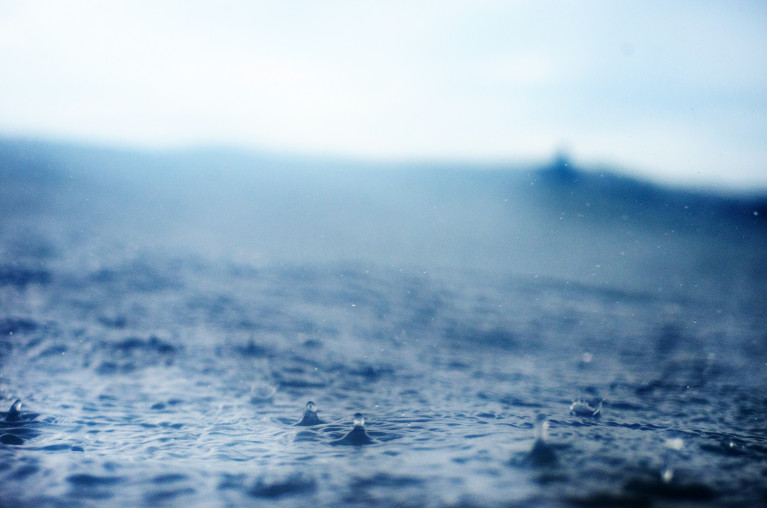The Marine Institute (MI), Environmental Protection Agency (EPA) and Met Éireann (MÉ) have published a report on "The Status of Ireland's Climate".
This is the second comprehensive analysis of "essential" climate data collected in Ireland. It confirms and updates findings from the 2012 report and details how global changes are being reflected in our atmosphere, oceans and our landscape.
The report was prepared by MaREI, University College Cork and funded by The Environmental Protection Agency (EPA), Met Éireann (MÉ) and the Marine Institute (MI).
• Long term observations in Ireland provide important insights on the causes and consequences of Climate Change;
• Increases in atmospheric levels of carbon dioxide, methane and nitrous oxide have been observed in Ireland, and reflect the increasing global levels of these key drivers of global warming;
• Global warming has resulted in Ireland's climate becoming warmer and wetter;
• Sea level rise, increased ocean acidity, and higher ocean temperatures are also observed in our oceans and coastal areas;
• Ireland's ocean and terrestrial ecosystems are responding to these changes, resulting in changes in ocean species and a longer growing season on land.
Welcoming the publication of the report Laura Burke, EPA Director General, said: "Climate observations provide the basis for our understanding of the realities of climate change here in Ireland, in Europe, and globally. As a Party to the UN Framework Convention on Climate Change, and the Paris Agreement, Ireland has committed to carry out the range of climate observations outlined in this report. These data enable bodies such as the IPCC to carry out their analysis of global changes. Importantly, they are needed to inform effective responses to the changes that are happening here in Ireland.
Today's report brings together the evidence of the changes that have occurred across Ireland's environment, from both long term detailed measurements on our land and in our oceans and atmosphere and from linked data from satellite observations from programmes such as Copernicus."
The scientific data monitored and collated by GCOS Ireland represents Ireland's long- standing contribution to the international scientific effort of providing the fundamental data needed to monitor our changing climate. GCOS Ireland collects scientific data on more than 40 Essential Climate Variables, identified by the UNFCCC, across atmospheric, oceanic, and terrestrial domains.
Highlighting the importance of the Status of Ireland's Climate report Eoin Moran, Director, Met Éireann said: "As citizen's in Ireland and around the world are now seeing the impacts of Climate Change, through evermore extreme weather events, fires and flooding etc; high quality observations of the climate are crucial to help inform society's response to the Climate Emergency. Scientific long-term monitoring of the climate underpins climate research and the development of climate services which support policy making and decision making in the face of the urgency of the climate crisis.
The Status of Ireland's Climate report not only includes invaluable data provided to GCOS as Ireland's contribution to the global climate monitoring effort but also informs development and improvement of national climate monitoring infrastructure to provide ever better understanding of our climate system and to optimise national climate monitoring capacity. This long-term climate monitoring allows us to best compare changes occurring in Ireland's climate to those across Europe and the rest of the world and to tailor our national response into the future".
Commenting on the findings, Mick Gillooly, Interim CEO, Marine Institute, said: "Long term climate monitoring programmes are needed to provide the evidence required to support national climate policy and action. It is through sustainable long term monitoring networks that we can measure the current state of our climate, and how much it has changed by, which in turn gives us an indication of how much more it is likely to change by into the future."
Key findings from the report
Atmosphere
• The annual average surface air temperature in Ireland has increased by over 0.9oC over the last 120 years, with a rise in temperature being observed in all seasons.
• Annual precipitation was 6 per cent higher in the period 1989 to 2018, compared to the 30-year period 1961 to 1990.
• The concentration of the main Climate driver: greenhouse gases - carbon dioxide, methane and nitrous oxide - measured in Ireland, continued to increase since 2012 with long term implications for our climate.
Oceans
• Satellite observations indicate that the sea level around Ireland has risen by approximately 2-3mm per year since the early 1990s.
• Measurements in the surface water to the west of Ireland indicate an increase in ocean acidity which is comparable to the rate of change in oceans around the world.
• The average sea surface temperature measured at Malin Head has been 0.47ºC higher over the last ten years compared to the period 1981-2010.
Land
• There is an increase in river flows across most of Ireland since the early 70s. However, there is evidence in recent years of an increase in potential drought conditions especially in the east.
• Land cover observations since 1990 show increases in the areas covered by artificial surfaces and forest whilst there is a decrease in wetland areas.
The report also identified that progress has been made in several areas of Ireland's observation infrastructure, resourcing, analyses and co-ordination, since the 2012 Climate status report. Nonetheless, further action is needed to ensure the national climate observation system is fit for purpose for the coming decades. This includes continued maintenance of existing climate monitoring programmes and infrastructure, the transition of climate observations to long-term sustainable programmes, and investigate potential to monitor essential climate variables not currently observed in Ireland.
Links to relevant materials
The Status of Ireland's Climate, 2020
Climate Ireland, Ireland's Climate Status Tool, provides interactive access to the Climate Status Report Ireland (CSRI) 2020.
Contact Information
Environmental Protection Agency:
Emily Williamson/Aileen Moon, EPA Media Relations Office 053-9170770 (24 hours) or [email protected]
Met Éireann
Bonnie Diamond, Communications Meteorologist 01-8064255 or [email protected]
Marine Institute
Sheila Byrnes, Communications Manager, 087-8155271 or [email protected]
































































